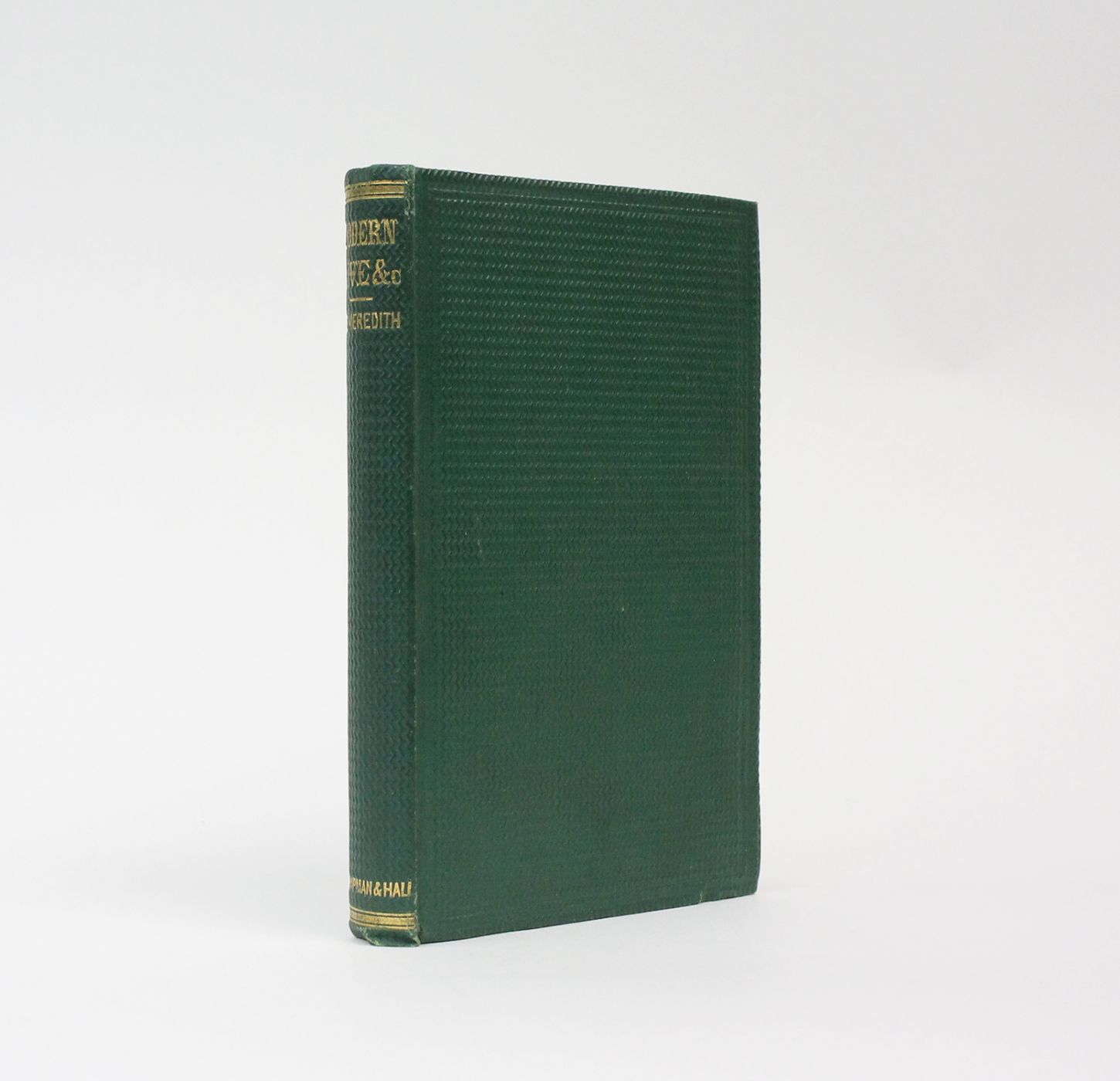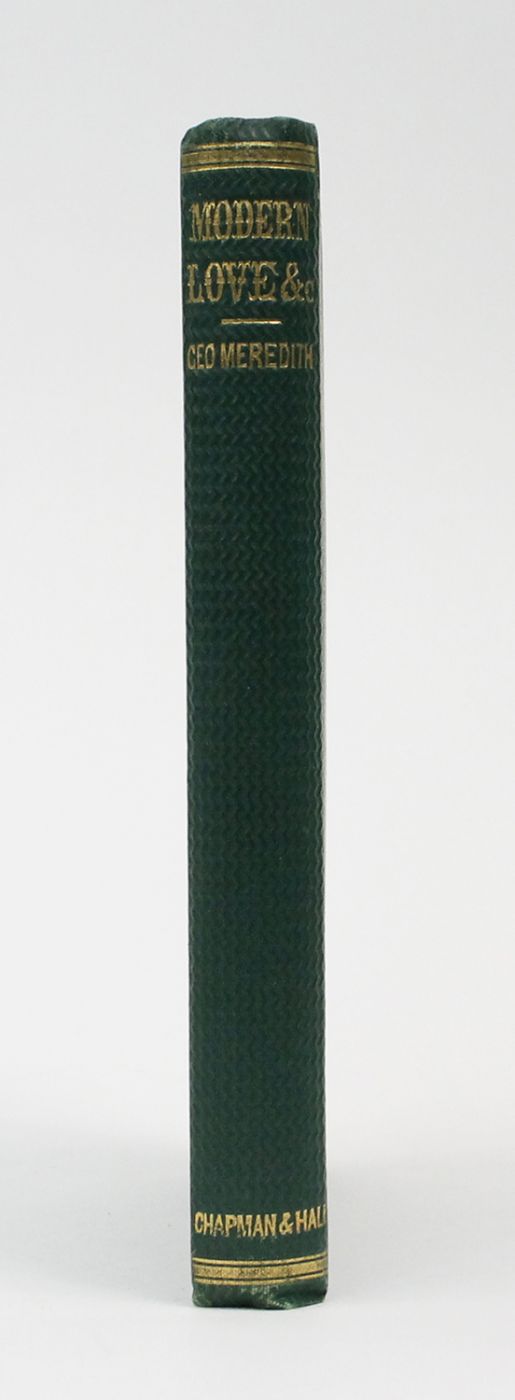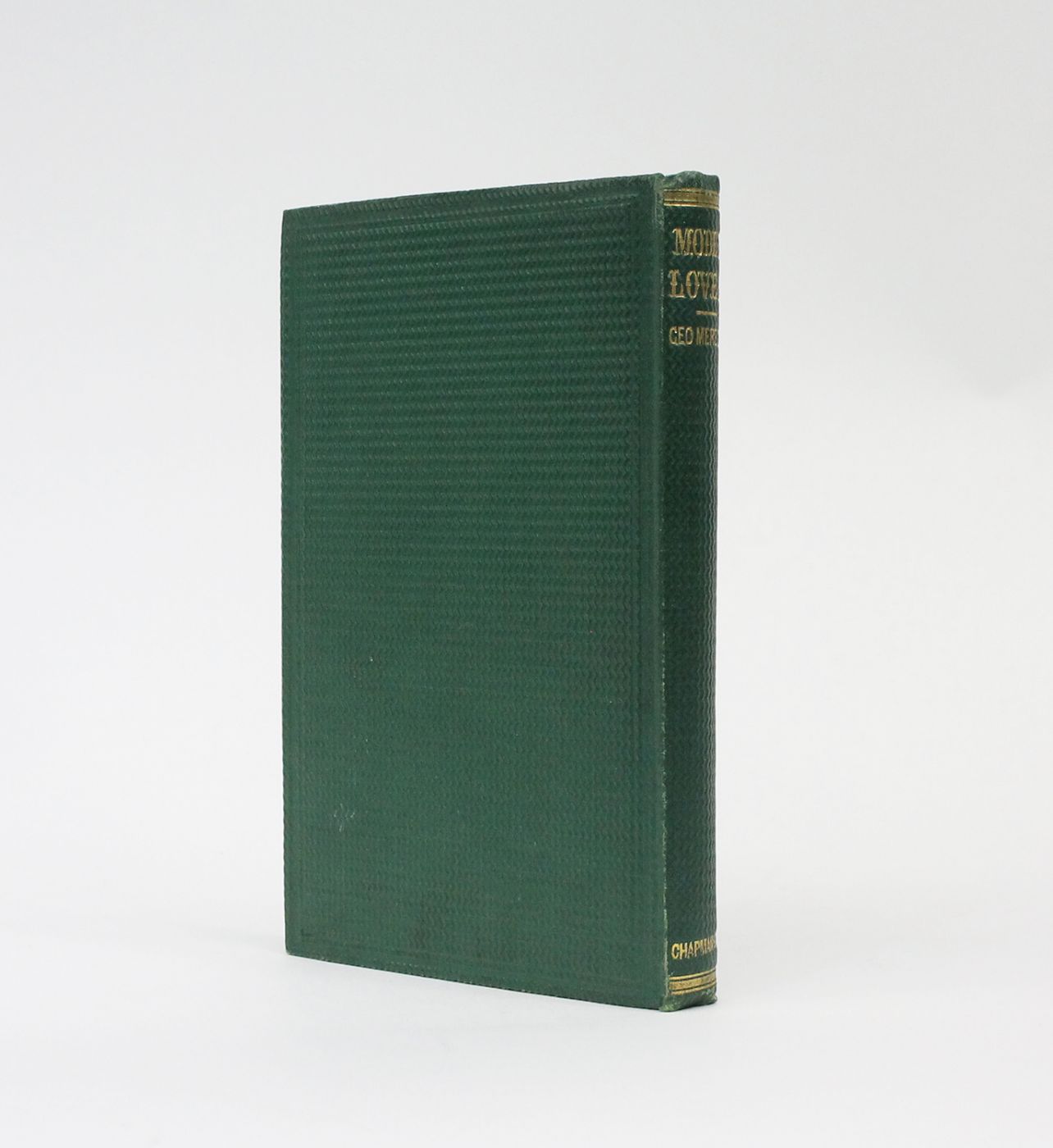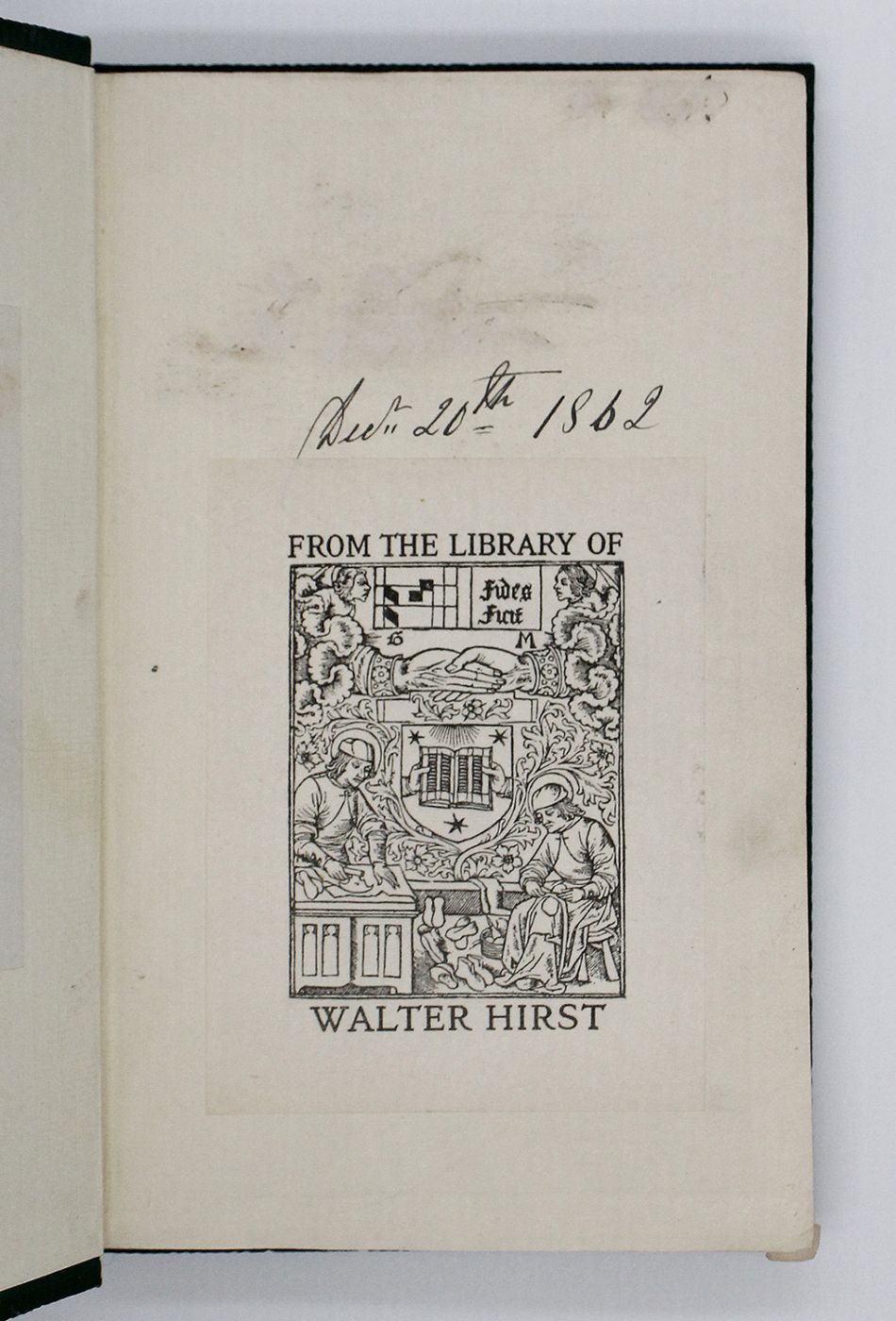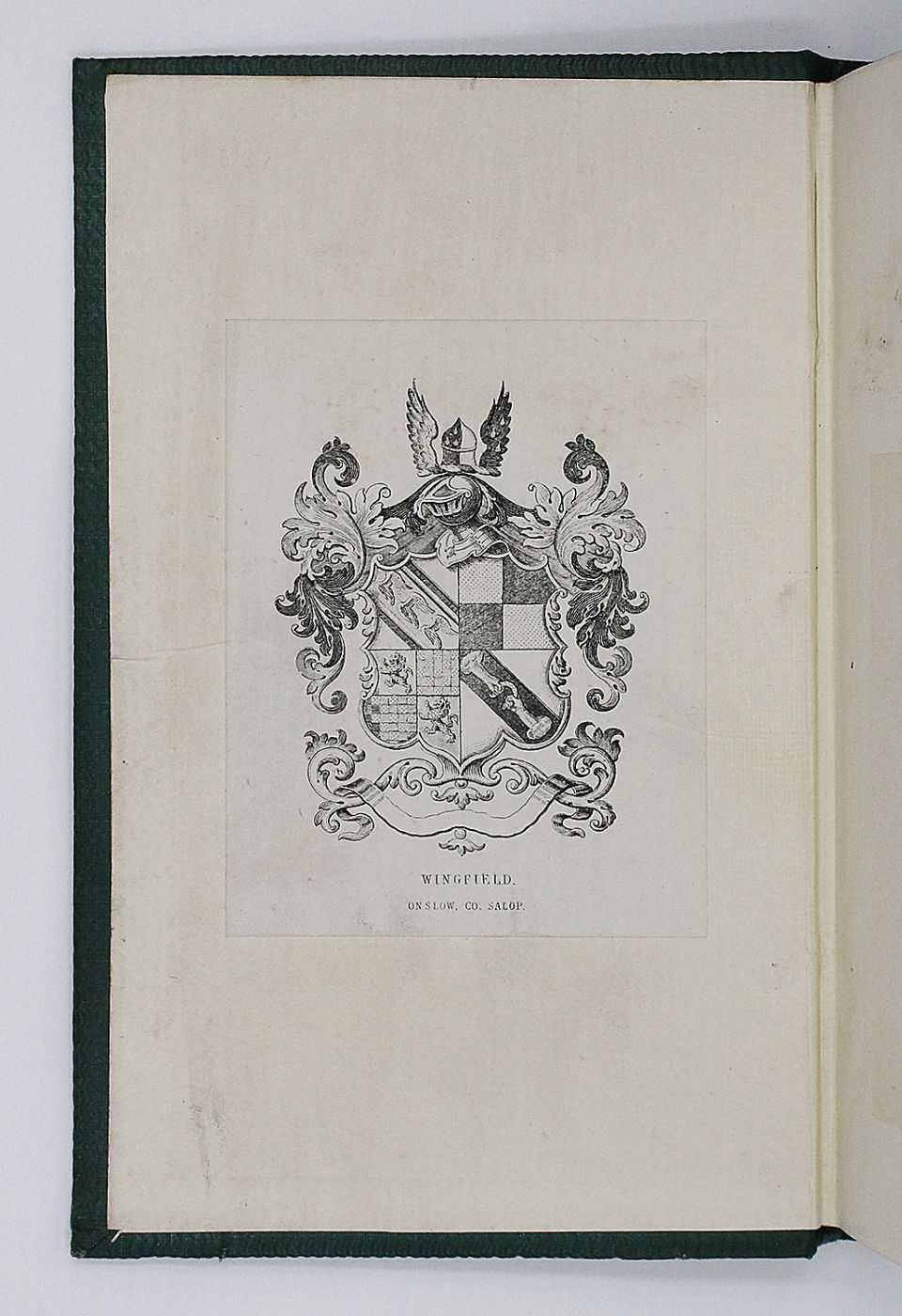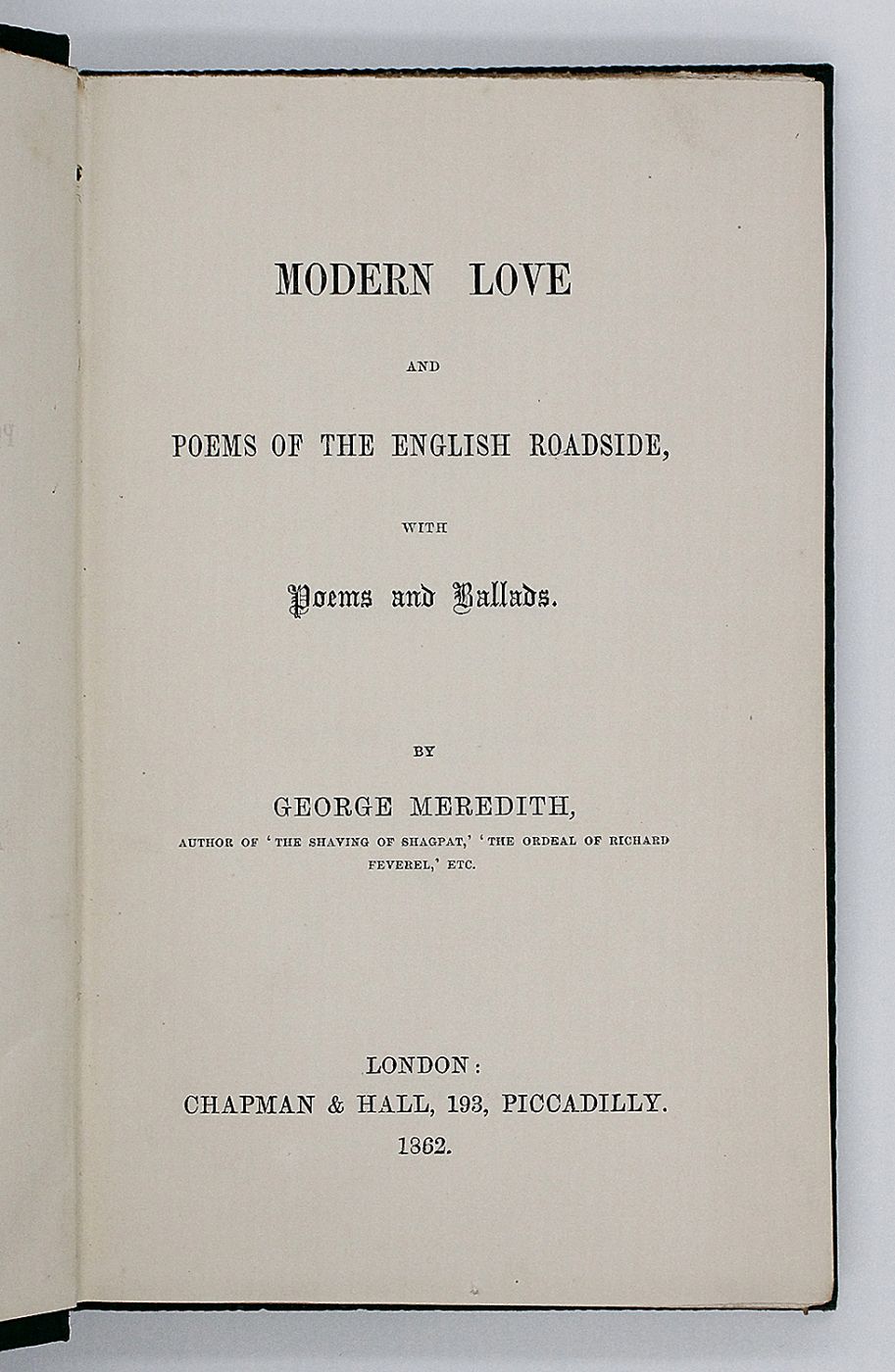MODERN LOVE: And Poems of the English Roadside, with Poems and Ballads.
First edition, first printing. Original green wave-grained cloth (John Carter's 'A' binding), blind-stamped double-ruled borders to front and rear panels, lettered in gilt to the spine with three horizontal gilt bands to upper and lower edges. Untrimmed edges. A better than very good copy, the cloth and gilt vivid, the binding square and firm, the hinges strong. Spine tips are a little softened, with a small diagonal half-centimetre crease, and a little rubbing, to the lower tip. Small bump with an associated short cloth tear (c. 3 mm) to the lower edge of the front panel. Light rubbing to outer corners, the lower corner of the front panel a little softened. Light spotting to fore- and lower page block edges, spreading a little to the outer margins of a few pages. The contents, with the odd isolated spot and a few small marks to the margins, are otherwise clean and bright. A couple of pages roughly opened resulting in minor loss to the margins (upper edge of the final two numbered leaves and to the outer edge of pp. 57-8), not affecting the text. With the bookplate showing the coat of arms of the Wingfield family, Onslow, Co. Salop affixed to the front pastedown (probably Col. Charles George Wingfield (1833-91), Sherriff of Shropshire, who inherited the Onslow Estate from his uncle, John Wingfield), and the illustrated bookplate of Walter Hirst to the front free endpaper, with a date, Dec 20th, 1862, in black ink above it. There are traces of an erased name above the date (with a little abrasion), and another small erasure to the outer corner. Altogether, a very presentable example of Meredith's great sequence, in the first state binding.
In his 1932 volume, 'Binding Variants', John Carter refers to four varieties of cloth binding used for the first edition sheets of Meredith's 'Modern Love', all dark green but with differing grains and patterning, and noting that Maurice Buxton Forman, in his 1922 bibliography, mentions just one variant (the wavy grain of the present copy). Carter was initially unable to assign a chronological order to the variants, but by 1938 in 'More Binding Variants', had concluded that the wavy grained variant was the earliest, designating it binding 'A' (a conclusion that now seems to be generally accepted). 'Modern Love' (a relatively early work, predating the novels that made the author's name) was written during the winter of 1861-2. A sequence of fifty numbered sixteen-line poems, it is a thinly veiled account of the author's marriage to Mary Ellen Nicolls (daughter of the novelist and poet Thomas Love Peacock). J. B. Priestley, in his 1926 study of Meredith, describes the marriage as "doomed from the outset". In 1858, after nine turbulent years of married life and the birth of a son, Mary left the country with a lover, returning the following year however and eventually dying alone in her Weybridge lodgings in 1861. Although Meredith the man was reticent about the marriage, the poem, which Priestley describes as "subtly introspective [and] almost self-torturing", vividly "records the disillusionment of passionate married love slowly giving place to discord, jealousy, and intense unhappiness" (Margaret Drabble). The volume also includes 'Poems of the English Roadside and 'Poems and Ballads'. (Forman 8; Collie XXXVIIa; J. B. Priestley, 'George Meredith' [London, 1926]; Margaret Drabble, 'The Oxford Companion to English Literature' [Oxford, 1985]).
Stock code: 21754
£225
Published:
Category
Modern First EditionsLiterature
Poetry


